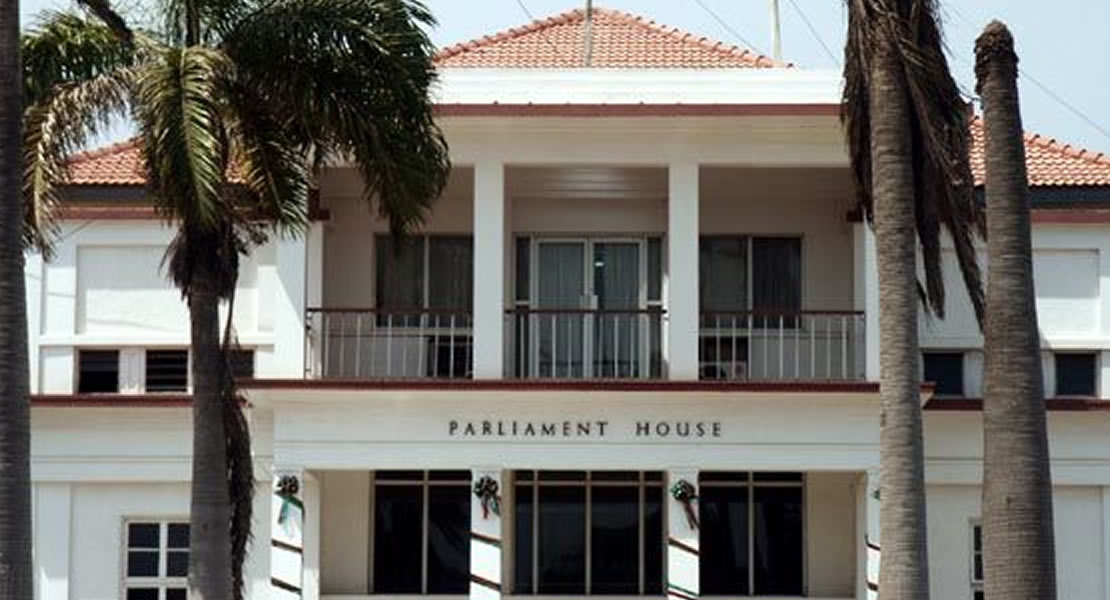
Parliament on Friday recessed after nine weeks of sitting, having approved at its last sitting, three loan agreements for various projects across the country.
The loans include 337 million facility for the construction of a 59-bed hospital with equipment for the University of Ghana, Legon, and also for additional works on the Ho Regional Hospital and Hohoe District Hospital.
The agreement is between the Government of Ghana and the Bank Hapoalim BM of Israel. The House also endorsed a 13 million Euros loan agreement between the Government of Ghana and ABN AMRO Bank NV of the Netherlands to finance the additional works on the Barekese Water Supply Expansion Project.
Another loan agreement that engaged the attention of the House was for $75,800,000.00 to finance additional works on the on-going 132-megawatt Combined-Cycle Thermal Plant at Aboadze (Takoradi-3 Thermal Power Project).
The supplemental credit agreement is between the Government of Ghana and the Societe Generale, Canada.This recess is for the second meeting of the Third Session of House. In all, five Bills out of the nine presented to the House, were passed.
The Petroleum Commission Bill, Bio-Safety Bill, The Law Reforms Commission Bill, The Health Institution Facilities Bill and the Export Development and Investment Fund Bill were those passed into law within the period.
Two instruments, such as the Sports Regulation and the Mobile Portability Regulation 2011 (L I 1994) were debated while the House ratified 20 agreements and conventions and adopted two motions.
These motions are the report on the House Committee on the State of Security and General Maintenance of the House and the Supplementary Budget Estimate of GHc1,463,123,559.00.
The House also considered the second reading of the Presidential Transition Bill during the period. Performing the closing ceremony, Mrs Justice Joyce Bamford-Addo Speaker of Parliament, said there were usual challenges that confronted the House but they were overcome.
She said the work of Parliament at the plenary and the committee levels were very hectic and difficult but were managed through the hard work of members.
Mr Cletus Avoka, the Majority Leader, said they had done their best to serve the people they represented through the voicing out issues of their key interest and advocacy. He said Parliament was willing and ready to collaborate with civil society, academia and think tanks in the legislative process.
He said: “By this engagement we endeavor to enrich law making and the governance process generally.” He urged civil society groups to put their services at the disposal of Parliament anytime the House called for them.
He said the presence of the Vice President, John Dramani Mahama, in the House to join the supplementary budget debate in accordance with Article 111 of the 1992 Constitution was commendable.
She thanked the Speaker for the firm and fair manner with which she steered the affairs of the House, adding that her efforts actually consolidated democracy in the country.
He indicated that her democratic effort had been recognized with the conferment of the prestigious award, “The Companion of the Order of the Volta.” “On behalf of the entire House I congratulate you,” he said. “You deserve our commendation for the balanced manner in which you executed the affairs of the House.”
He thanked the Minority for the cooperation and support in managing the businesses of the House, saying that the Clerk and the Parliamentary Service must be commended for their hard work because Parliament could not have functioned well without their efforts.
Mr Osei Kyei-Mensah-Bonsu, the Minority Leader, said though the meeting had been hectic and difficult the House had been able to diligently debate and craft new Bills as well as scrutinize and amend existing ills thoroughly.
“It is our hope that these bills would positively affect the lives of the good people of this country,” he said. “However, the unfortunate practice of very few members making themselves available when bills are at the consideration stage still persists.”
He said : “It is regrettable that most members demonstrate disinterest whenever bills are being considered.” He, therefore, called on the Speaker to arrange for some capacity building workshops for members in this regard.
He said the meeting had witnessed too many absenteeism of members resulting in the Chamber being empty frequently and called on the leadership to make every effort to ensure that the House sat in time and the issues of quorum and lateness addressed.
“For the members of the press corps, I commend you for your continuous efforts at partnering Parliament to bring issues of the House to the general public,” he said.
He called on editors to accord Parliamentary business much more space than they had done now for the electorate to better appreciate what their representatives do on their behalf.
Source: GNA